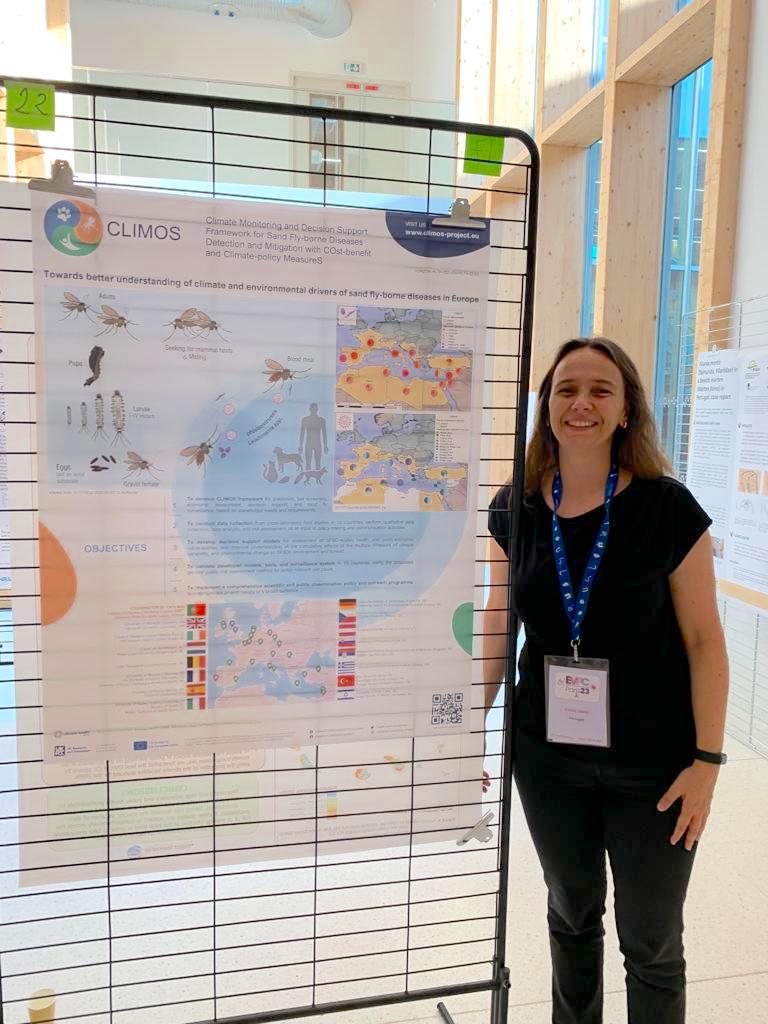Our coordinator, Carla Maia, attended the European Veterinary Parasitology College presenting the CLIMOS poster “Providing a better knowledge and comprehension of climate and environmental drivers of sand fly-borne diseases – the CLIMOS project.”
This Poster aimed to present the main objectives of the CLIMOS project, namely:
- To develop CLIMOS framework for prediction, fast screening, economic assessment, decision support, and sand fly surveillance, based on stakeholder needs and requirements.
- To conduct data collection from cross-laboratory field studies in 10 countries, and perform qualitative data collection, data analysis, and risk assessment, as input to policy-making and communication activities.
- To develop decision support models for assessment of sand fly-borne diseases (SFBDs)-related health and socio-economic vulnerabilities and improve understanding of the cumulative effects of the multiple stressors of climate variability, and environmental change on SFBDs development and spread.
- To validate developed models, tools, and surveillance system in 10 countries, using the proposed general public risk assessment method for policy-relevant use cases.
- To implement a comprehensive scientific and public dissemination policy and outreach programme to communicate project results to a broad audience.
The National Veterinary School of Alfort was founded, close to Paris, in 1766 by Claude Bourgelat, a French veterinarian, and is, at present, the most ancient Veterinary School in the world on its original site. This is also the place where EVPC was founded in 2003, by a group of dynamic and enthusiastic colleagues.
The 2023 meeting marks the 20th anniversary of the event, and is dedicated to the “Last 20 years in Veterinary Parasitology: trends and future”, and covers veterinary parasitology bringing it closer to the daily life of practitioners.
Learn more:
http://evpc-paris2023.org

